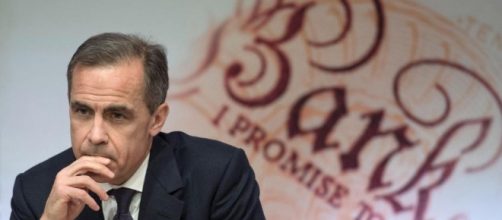The Bank of England is clearly not a Brexit supporter. Prior to June 23rd last year, the Bank's Governor, Mark Carney, warned that leaving the EU would hinder the economy. Former chancellor George Osborne said it would cause a second recession and lead to him imposing voters with a punishment budget. Luckily, none of that materialised.
In fact, the positive economic news is better than many experts anticipated. The UK has not experienced a recession. Growth has remained steady, despite the lack of enthusiasm for Brexit from Mr. Carney since the EU Referendum took place.
The services sector has helped drive this growth. Firms like Next, HSBC and even the Royal Bank of Scotland are experiencing positive sales figures. Last year, Snapchat announced plans to expand its British workforce and more recently, Amazon declared it would be enlarging its British operations.
Even though the pound sunk to its lowest level since 1985 the day after the vote, many commentators predicted that Britain would experience another Black Wednesday. The then chancellor Norman Lamont pulled the UK out of the European Rate Mechanism, which was viewed as a precursor to the euro. Instead, exporters benefitted from trading with countries they were not able to before and there was a surge in British tourism.
Sam Woods has now made Brexit worse
But the Bank's Deputy Governor, Sam Woods, has now made Brexit worse. In his letter to the Treasury Select Committee's chairman, Conservative MP Nicky Morgan, he has said the Bank is attempting to aid companies with restructuring their contracts in the possible event of a 'hard' Brexit. What is so frustrating about his pessimism is that they are concealing from businesses that the UK will thrive under World Trade Organization (WTO) rules.
Mr. Osborne suggested trading under WTO rules would be a catastrophe for the economy. The minimum firms would have to pay to trade under these rules would be a 3 per cent tariff. The United States and China trade with the EU via the WTO, yet their economies are propsering because they have the freedom to forge trade deals with other countries.
By talking down the economy, the Bank is eroding people's confidence.
A ploy to keep Britain in the EU
A transitional deal is nothing more than a ploy to keep Britain in the EU via the backdoor. There is no guarantee the Government could fully govern its own borders whilst remaining a member of the European Economic Area. It would mean the UK would have to accept certain EU laws and the jurisdiction of the European Free Trade Association Court.
The Bank of England wants Brexit to purposefully fail so that they can inform all the 'stupid' people who voted for it that they were right all this time.

